WAR FOR TALENT AND THE IMPORTANCE OF A STRONG INTERVIEW
Today we are in a protracted veritable war for talent on multiple fronts. With the well documented shortage of physicians and other healthcare professionals, along with the projected shortages to come or worsen it is an imperative to be prepared for battle with winning the war for talent the only objective.
The U.S. is facing a projected physician shortage over the next decade of between 40,800 and 104,900 doctors, according to data released by theAmerican Association of Medical Colleges (AAMC). According to a biennial census (at the end of 2018) from theFederation of State Medical Boards (FSMB), there has been a net increase of 12% or 103,610 actively licensed physicians in the U.S. since 2010 – which is simply not enough physicians.
Among the most important and often frequently undervalued portions of recruitment is the interview itself. There are many variables affecting the job/talent hunting process that are beyond our control. Conversely, there are variables that we can influence. Our contention is that we should manage the interview process to affect a higher probability of success in the war for talent.
We asked a number of physicians and APPs with whom we have worked who have extensive experience being interviewed, for their thoughts on the interview process and what their best experiences were and why. We have also solicited best interview practices from many of our most successful clients. Surprisingly, there were a lot of common responses from both interview and interviewee sides. We hope that this information empowers both interviewers and interviewees to make the interview process an effective tool in the war for talent.
For this two-part blog, we are first focusing on the initial phone interview.
PREPARE IN ADVANCE: For both physicians and clients, this was a big one. The phone interview is not only meant to get more information about the job; it’s also an opportunity for the employer to get to know the physician. Both sides feel very turned off by conversing with someone who does not seem well prepared, is late for the call, or even miss the call altogether. Have the appropriate documents ready for easy reference. Taking the time before the interview to outline your questions and intent is one of the most important things you can do. A majority of the clients we surveyed use a standard set of questions which allows for a degree of objectivity as select questions are used for all applicants.
BE POSITIVE, OPEN MINDED, AND SHOW GENUINE INTEREST: No one enjoys hearing a sad story, especially when making an introduction. It’s a huge deal breaker. When you get on the phone, smile. Even though they can’t see you, they can tell you are smiling. Make sure that your questions and answers are sprinkled with affirmations. Ask yourself, “By the end of this call, will the client/physician select us/me for the job?” Express interest in the job/physician. Let them know you will be responsive and work with them to make the deal happen. If you are a client, don’t just stick to your checklist; really take time getting to know your candidate personally to really know who this person is at his/her core. You can leave the rest for the on-sight interview.
KEEP IT SIMPLE AND REMEMBER TO LISTEN: One of the reasons employers shy away from candidates is that they have too many issues. Same goes for Physicians shying away from a job opportunity. If you have too many questions, or you talk too long without listening, and you may come across as being too complicated. Clients are looking for simple, quick, and easy solutions and physicians want to feel like the opportunity will be a positive and easy transition. Make sure your questions and answers are clear and concise. Avoid launching into tangential stories.
EXPRESS THANKS: As you conclude the call, make sure to express sincere gratitude for the opportunity to be interviewed and/or to have interviewed. After you complete the interview, call your physician representative, or recruiter and express gratitude for the opportunity they arranged for you. This will also give you a much-needed opportunity to review the call, share your impressions about the job and discuss next steps. Thanking all parties develops trust and highlights your professionalism.
Remember, those who treat these calls as a casual introduction are most often passed over. The goal should be to have the candidate want to pursue your opportunity. If the candidate wants to move forward, then you, as the client/hiring entity, can choose between a “yes” or a “no”, putting your process in a better position of control, thus, increasing the probability of success in the war for talent.
Implementing these points in your phone interviews will help set you apart from the competition and land you great opportunities/candidates.
Stay tuned as we summarize our poll results for the on-site interview next week.


